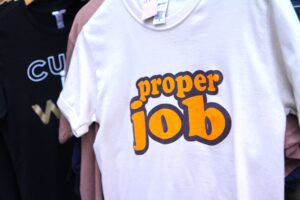
Everyone knows you need to prepare for an interview, but what exactly does that entail? Here are my top tips for ensuring you are as ready as you can be for the big day.
1. Practice makes perfect
It’s a good idea to have a practice run-through with someone you trust – maybe consider using a coach for this. This can really help if you’re not naturally confident in interviews and particularly if you haven’t interviewed for a long time.
2. Bring your own questions
Make sure you prepare at least four questions to ask your interviewer at the end of the interview – this number should ensure you still have a couple left if some are answered naturally during the course of the interview. Not asking any questions at all can give the impression that you lack initiative or are not very interested in the role.
3. Prepare for competency based questions
Many employers choose to ask competency based question as part of the interview process. Typical questions include:
“Tell me about a time when you have…
-dealt with conflicting priorities;
-managed a team;
-gone above and beyond what was expected of you;
-managed a period of change;
-dealt with a difficult boss/ customer/ colleague.
It’s a good idea to have thought about such questions and prepare answers using the STAR (Situation; Task; Action; Result) method.
4. Re-read the job description, your job application form and submitted CV.
Sometimes there may be a long gap between applying for a job and your first interview. It is always a good idea to remind yourself of what they are looking for and what information you have submitted to the Company so that you don’t look unprepared during interview.
5. Plan how you’re getting there
Make sure you know the address, plan how long it will take to get there and check parking facilities if driving.
6. Know the dress code
Check the dress code of the Company – some organisations have a more relaxed dress policy and so smart-casual attire may be more appropriate in these situations. Have your clothes out ready the night before so that you don’t have to stress about what to wear in the morning.
7. Research the person interviewing you
As a minimum, make sure you know who is interviewing you and the name of the CEO and FD. I would also recommend looking at their LinkedIn profiles and their other social media sites (Twitter/ Facebook). This could give you some common ground to talk about during the interview.
8. Research the Company
Most people would think to look at the company’s website but I would also suggest that you:
-Look at the Company’s Social Media sites
Facebook, Twitter and LinkedIn can all be great sources of current news about the company.
-Set up a Google Alert for the Company
This is a great way of monitoring what’s being written about the Company on the internet.
-Google the CEO or FD’s name
Again, this can reveal some great information about the Company’s activities.
-Obtain a copy of the Company’s annual accounts
Companies House now provide annual accounts for free on their Beta site (https://beta.companieshouse.gov.uk)
During your interview, where possible, try and talk about the information you have picked up about the Company – if it helps, take in notes (you could also take in a copy of the statutory accounts, your CV and job application form plus some prompts for answering the competency based questions). An interview is not a memory test and nobody should take issue if you get brain freeze and need to refer to your notes. In fact taking in notes and other paperwork will demonstrate to the interviewer that you are keen to get the job.
Interviews are nerve-wracking but by preparing as much as possible in advance you are likely to give yourself the best chance of performing well on the day.



